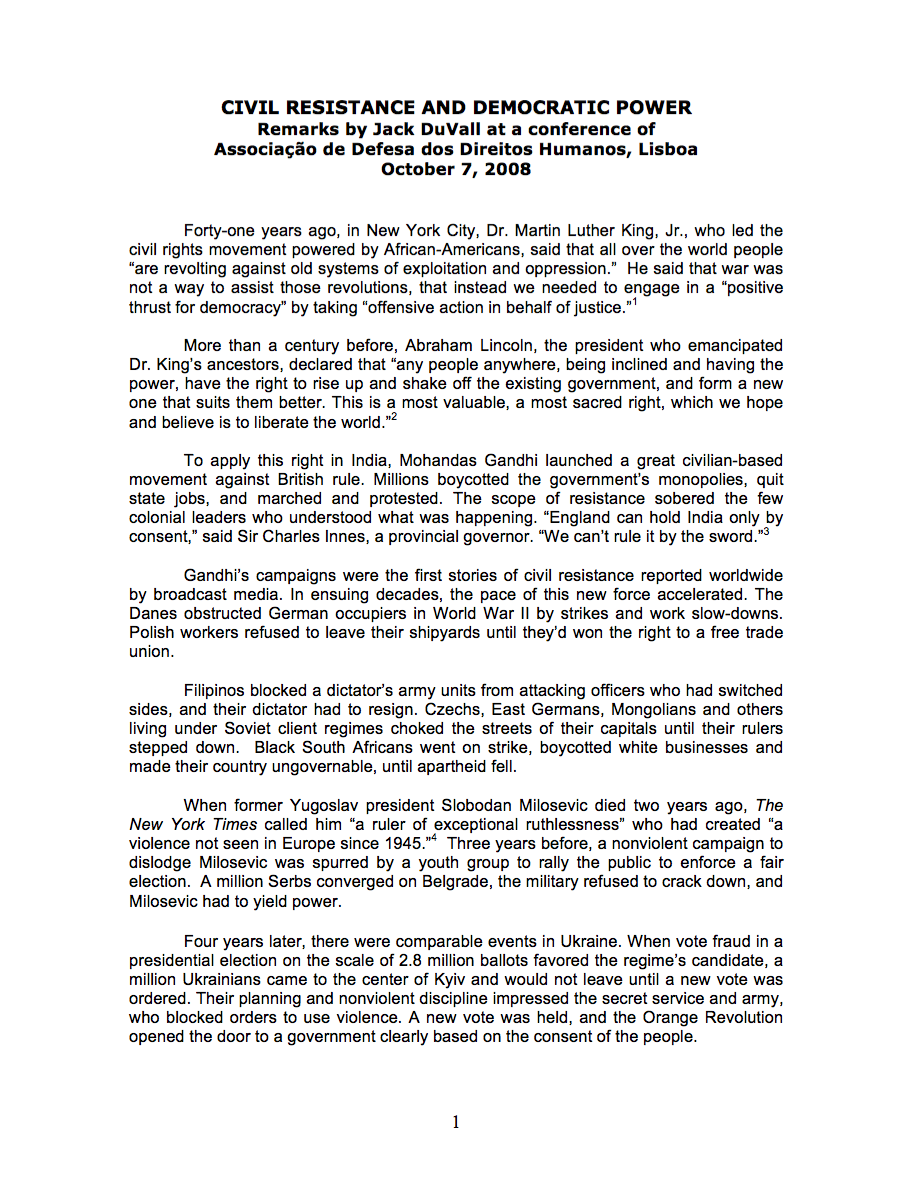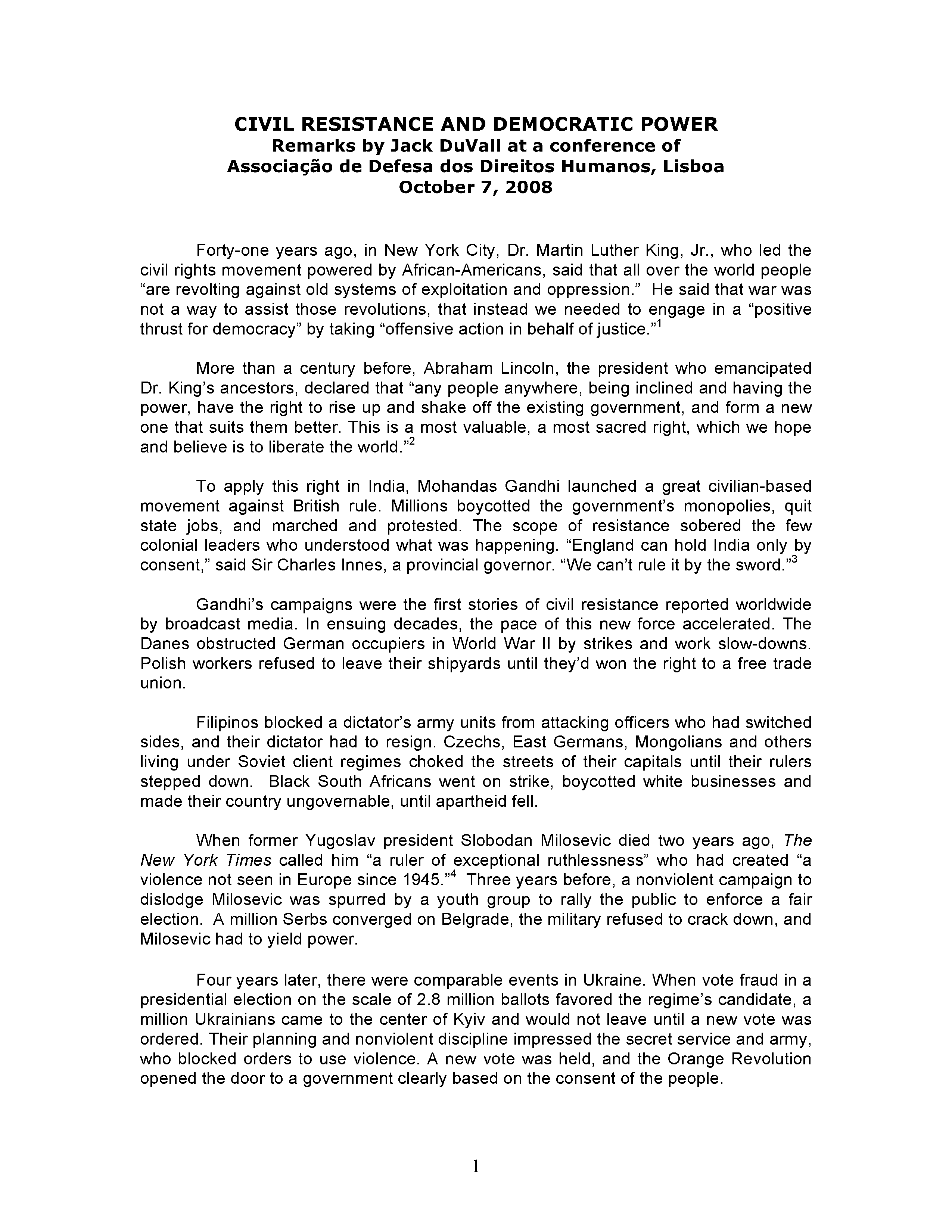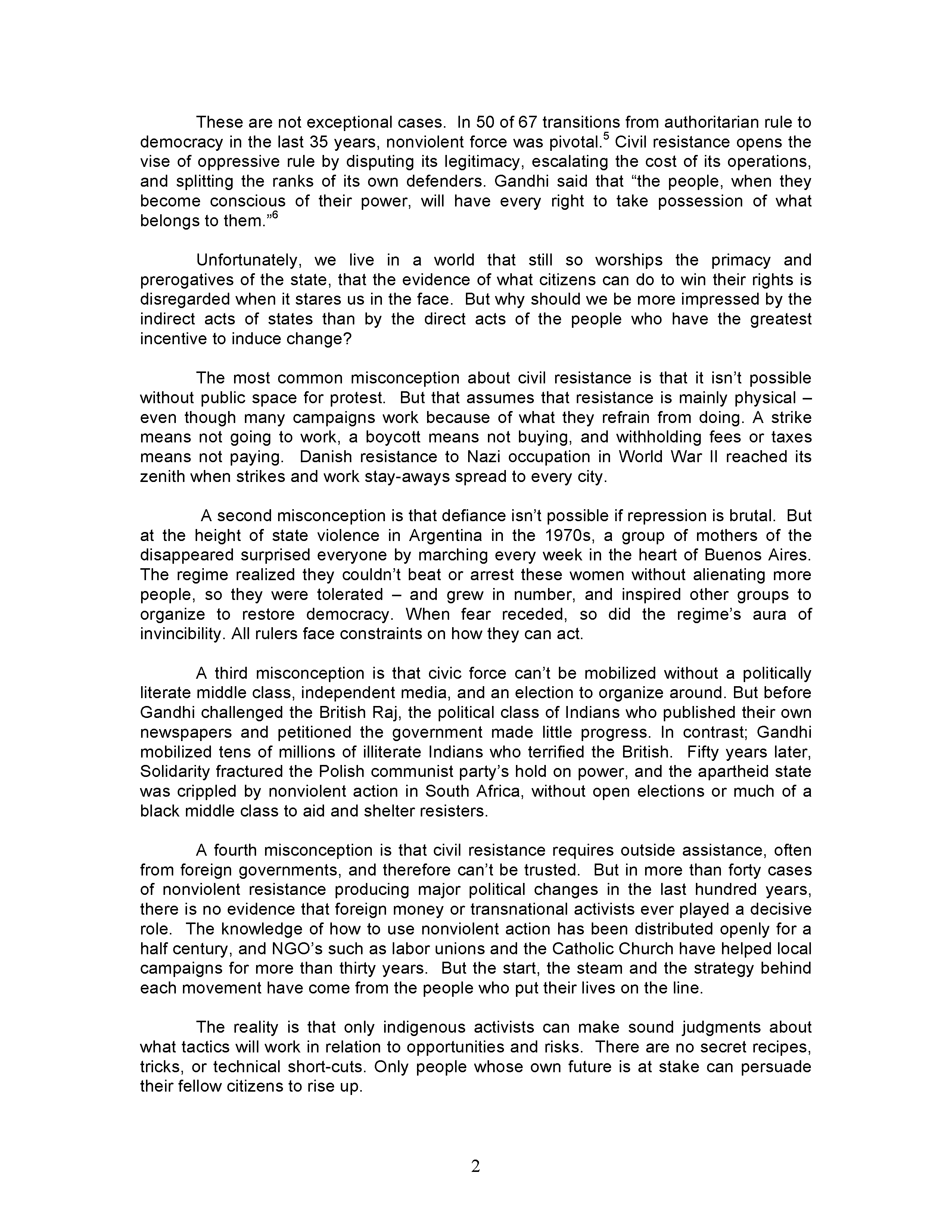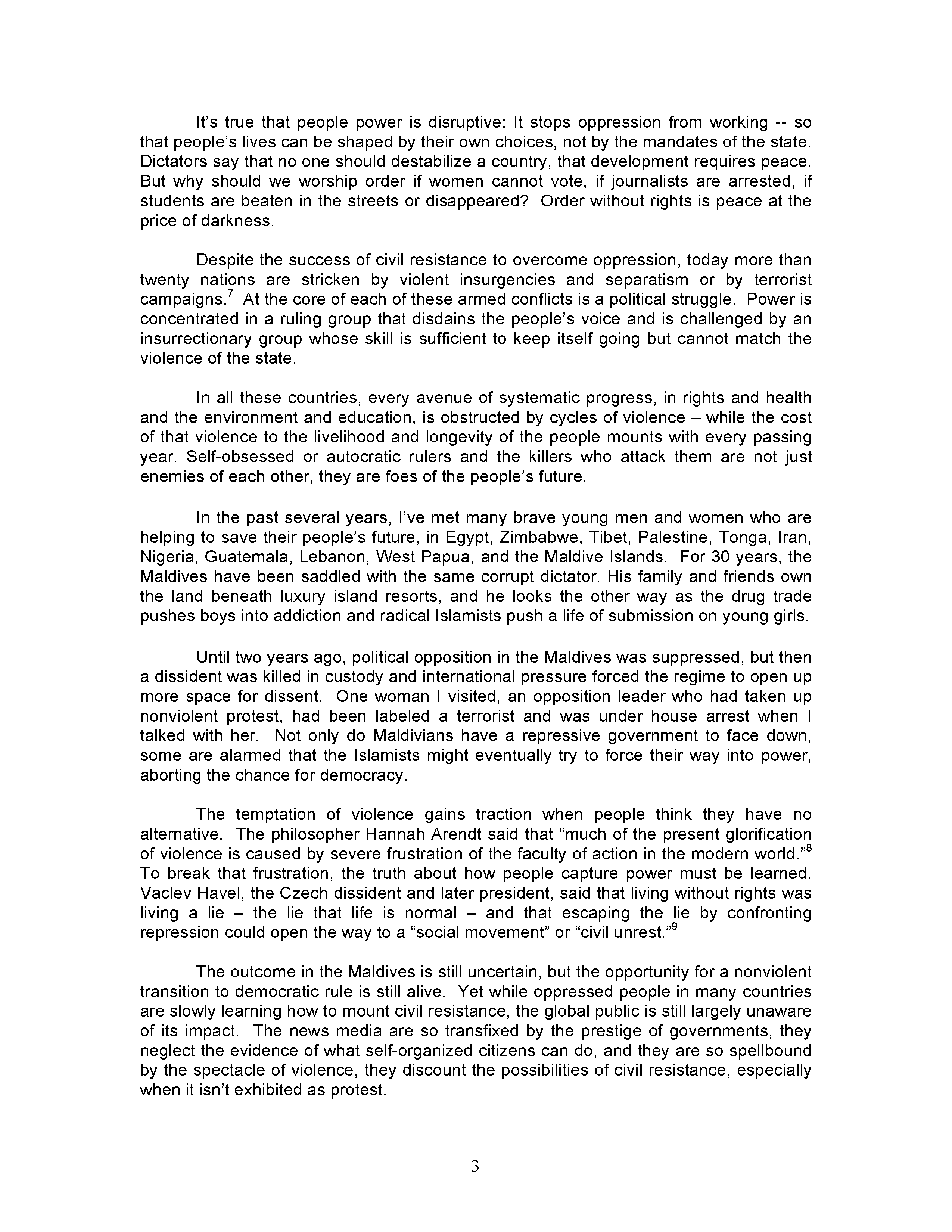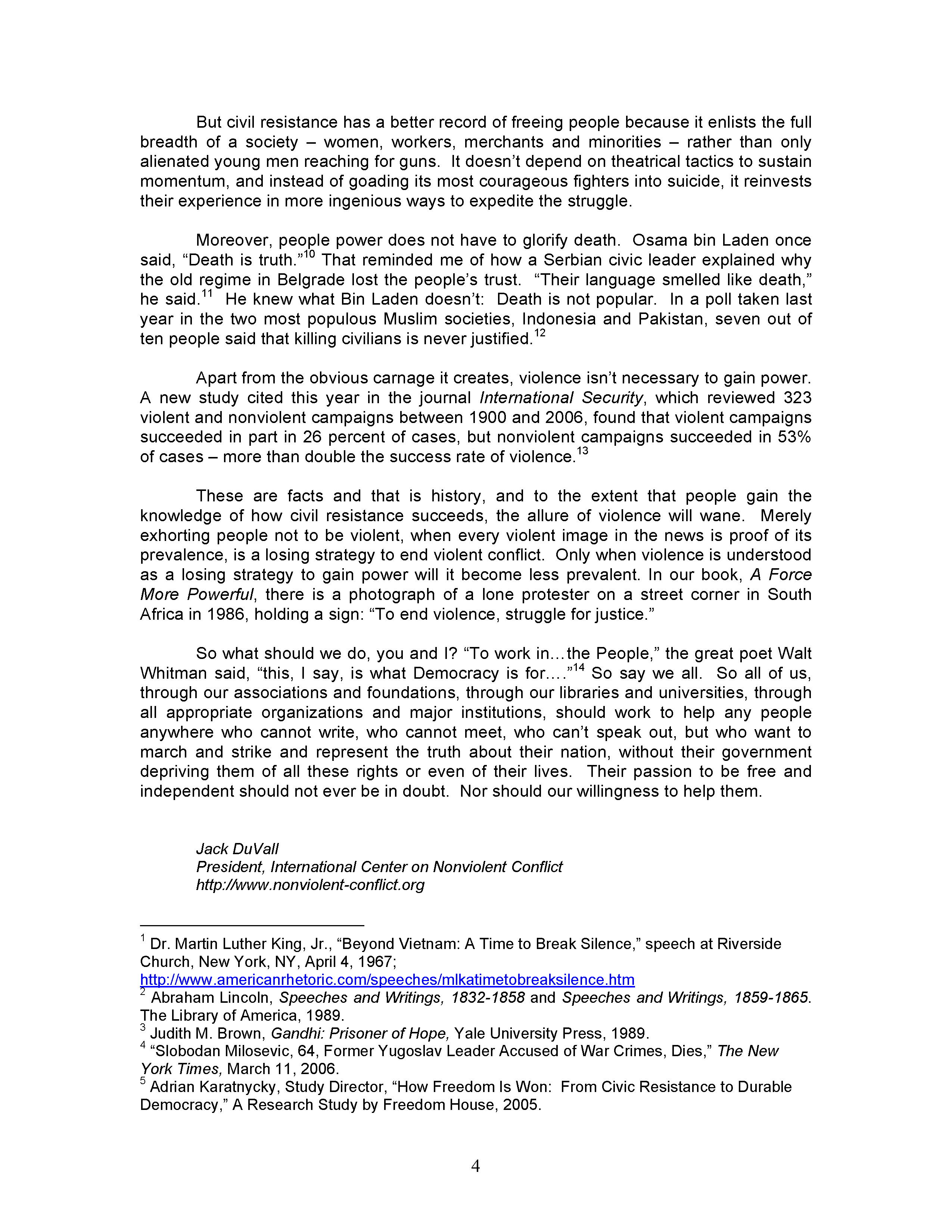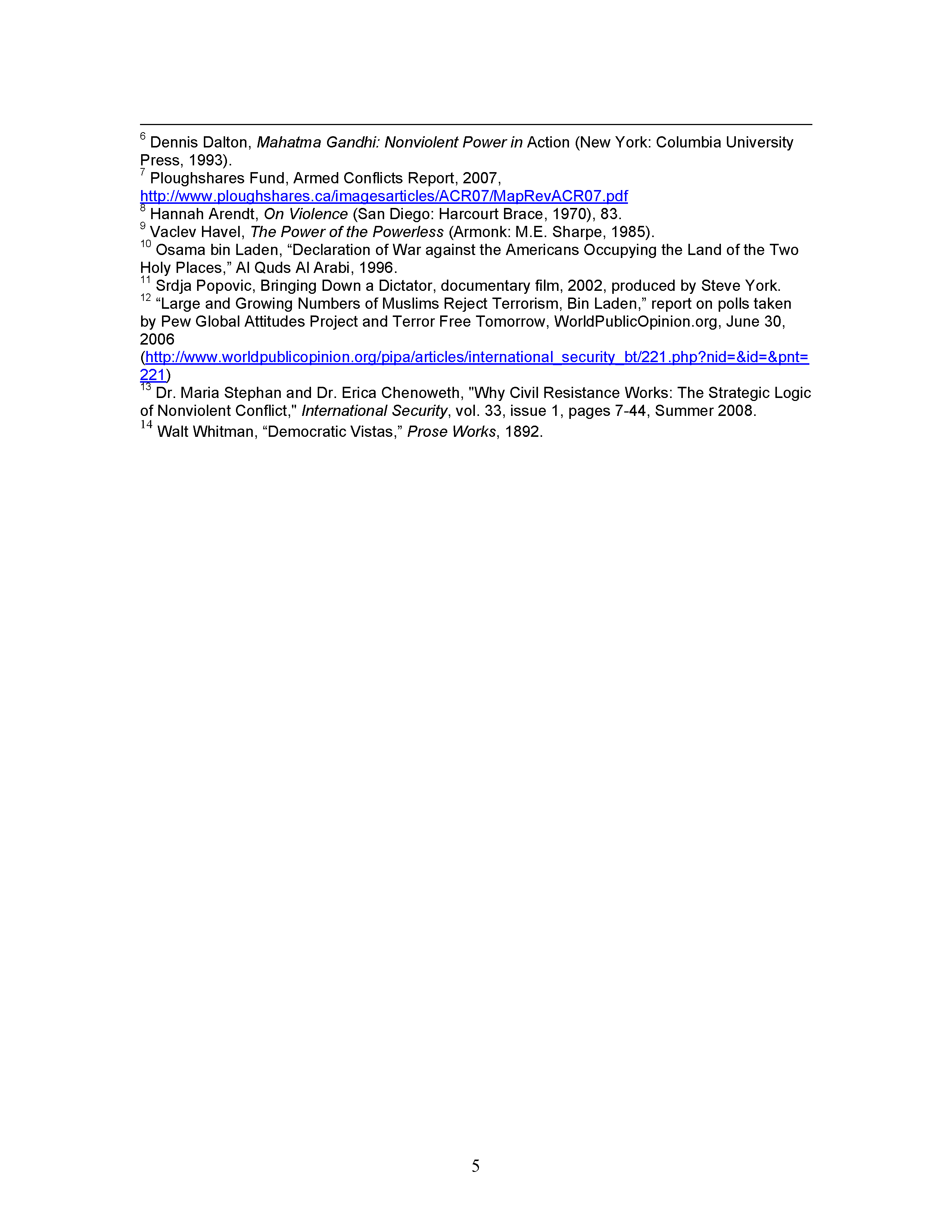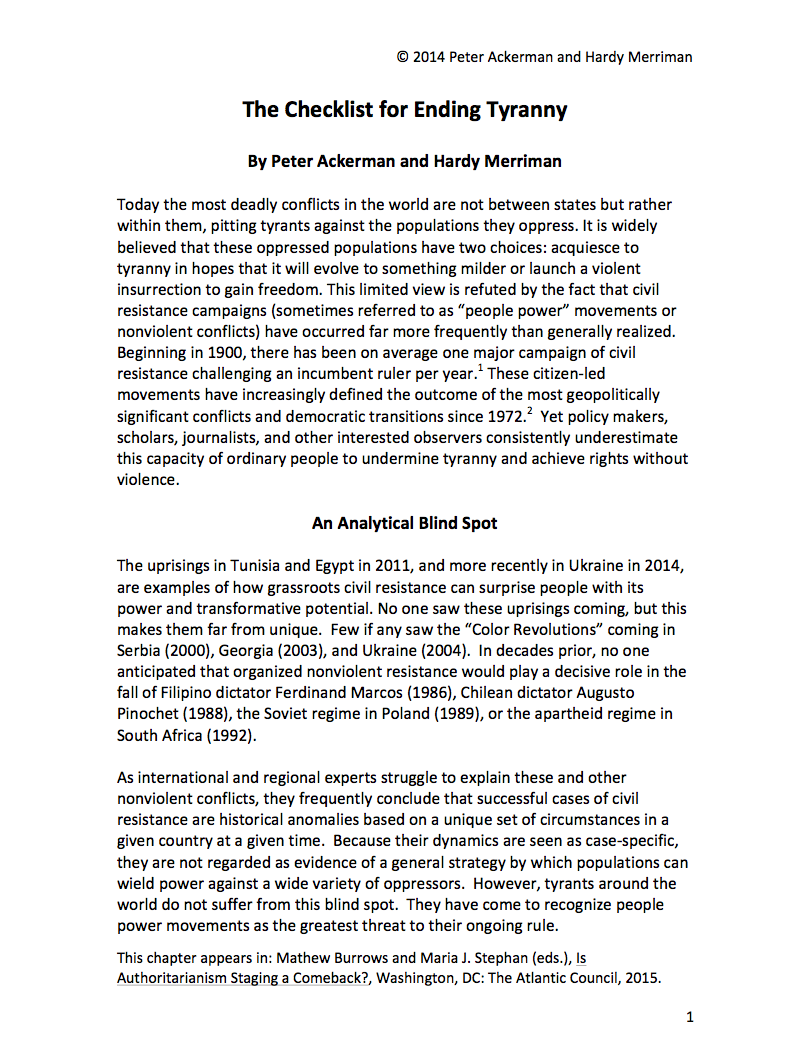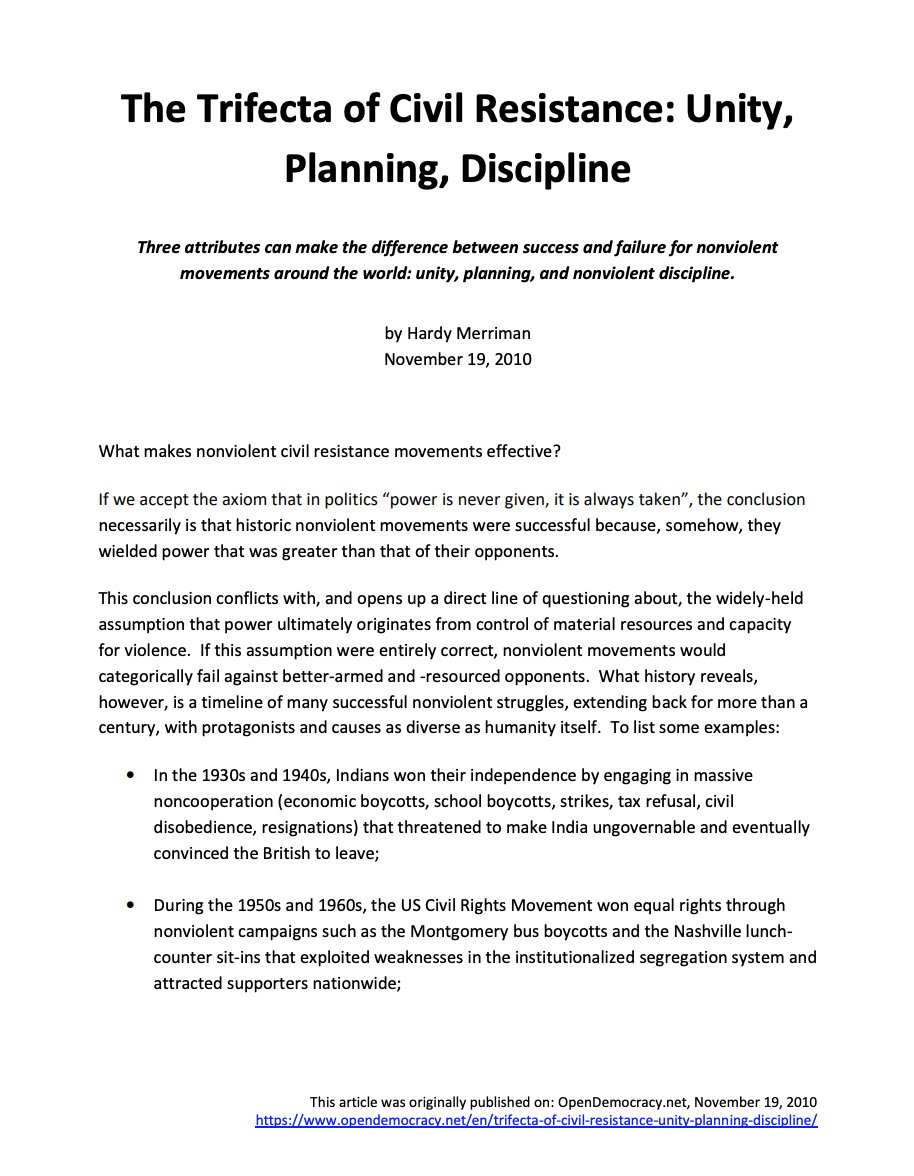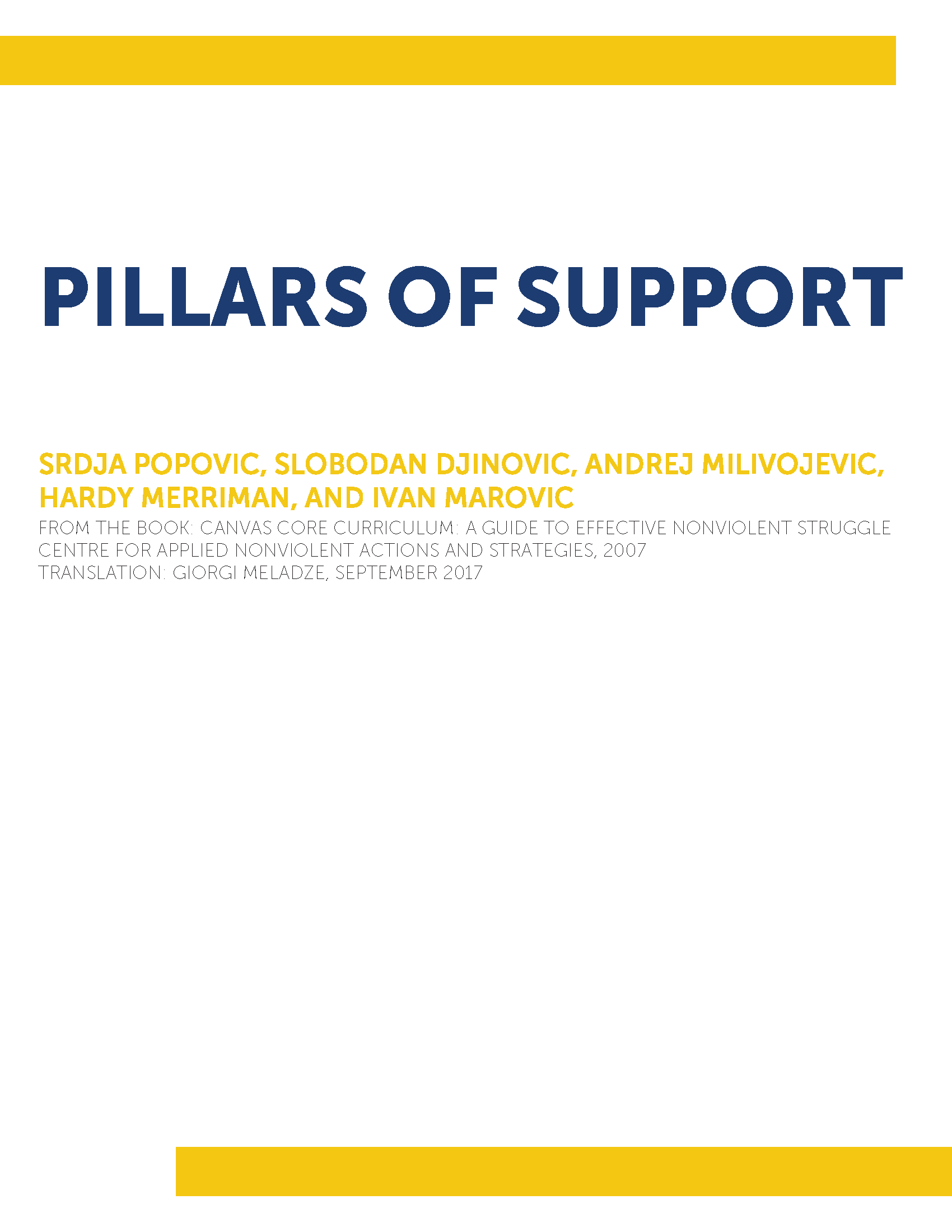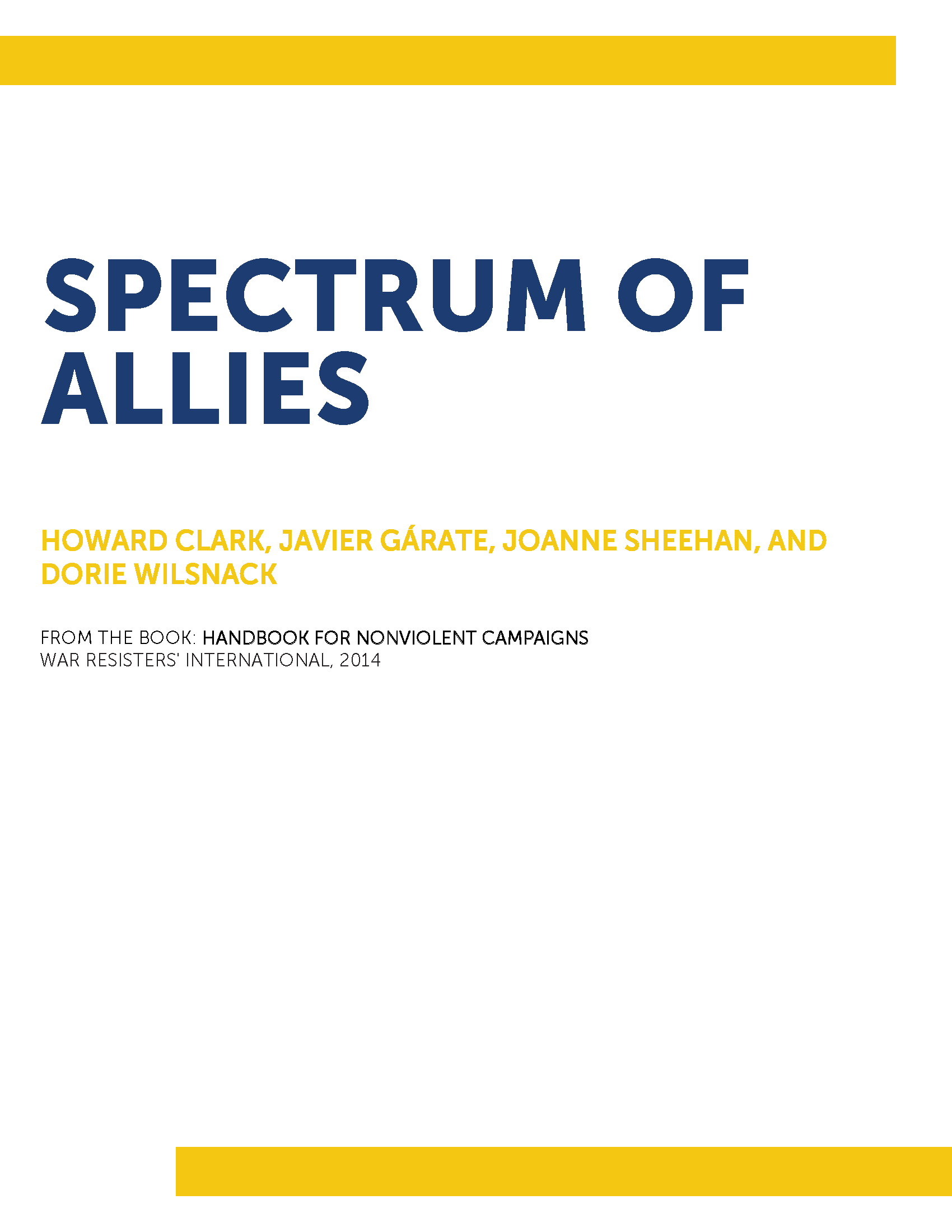Civic Resistance and Democratic Power
Remarks by Jack DuVall. Focuses on an overview of the history of civil resistance worldwide post-1945, and focuses on success stories such as the overthrow of Milosevic and Argentinian civil resistance in the 1970s to prove the power and effectiveness of nonviolent action to create real, positive change.
Presented at the ADDHU “Civic Responsibility and Human Rights” International Conference
Associação de Defesa dos Direitos Humanos (Association for the Defense of Human Rights)
Lisbon — October 7, 2008
